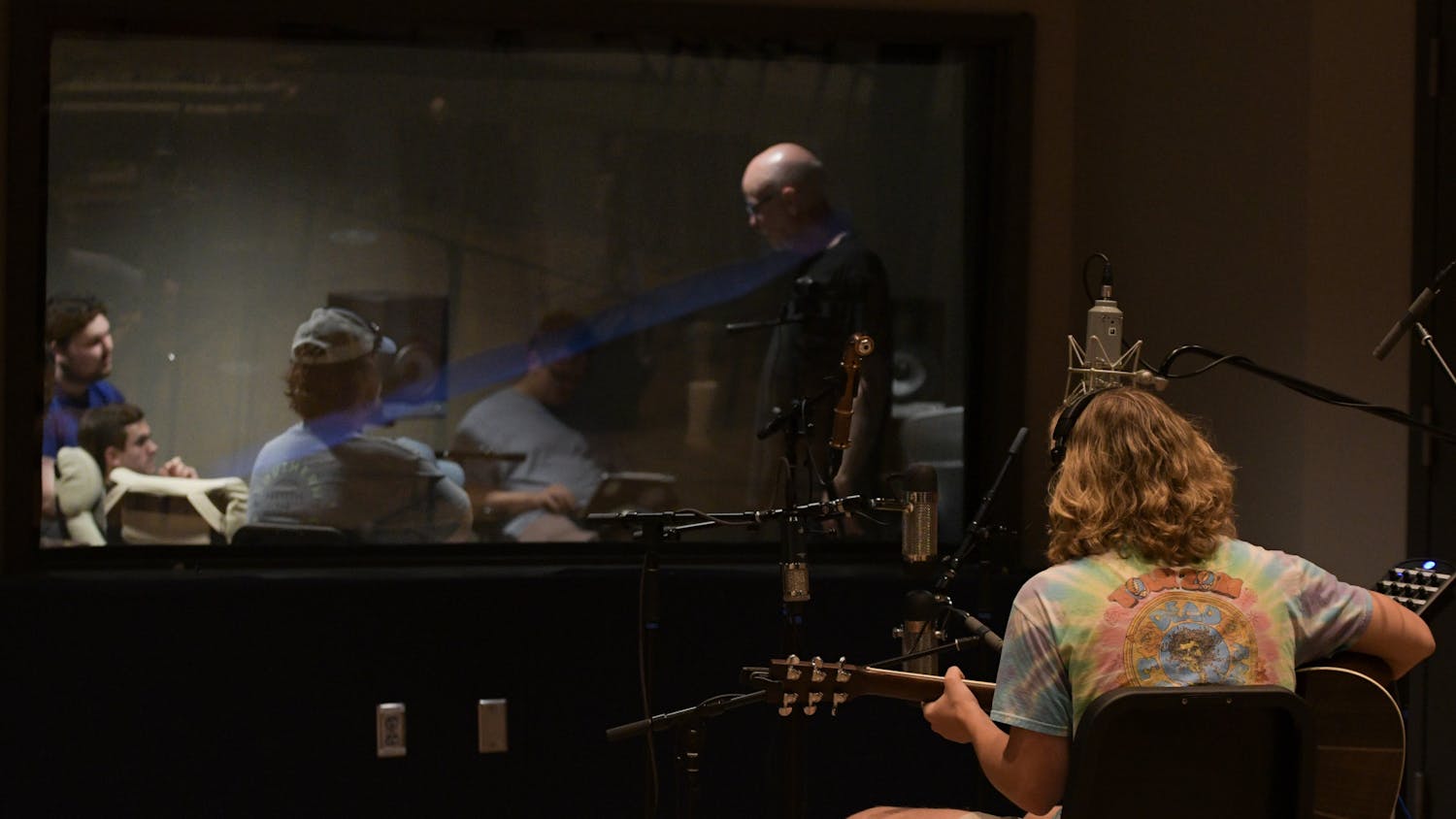He’ll lie at someone’s feet if he senses anger or rest his head in someone’s lap and offer a paw if he sees tears, but he also knows to give people space when they need it.
Moose, a 7-year-old yellow Labrador Retriever, works as a full-time therapy dog alongside his principal handler Katherine Werner, licensed staff psychologist, at the University’s Student Counseling Services.
Moose served as a bomb detection dog with Auburn University Canine Performance Sciences until he retired in May, Werner said. Moose then joined counseling services as a therapy dog and began working once the fall semester began.
Counseling Services chose to implement dogs for animal-assisted therapy because of their reception to emotion, approachability and trainability, according to Werner.
If students are comfortable with having animal-assisted therapy and the counselor determines it’s appropriate for their treatment, Moose will join their session.
Because people sometimes find dogs more approachable than a counselor, Moose can increase their motivation or engagement in counseling, reduce stress and help them feel more emotionally expressive.
Because Moose reflects and responds to the client’s emotion, he can sometimes help the counselor gauge the client’s feelings.
“He can add an element or component to therapy that can make it, for some people, more effective,” Werner said. “He’s an element of the existing treatment.”
A typical day for Moose begins with breakfast and a walk before he comes into the office at 8 a.m. like any other staff member.
He attends any staff meetings for the day then gets to work on his appointments, taking two breaks throughout the day for a walk and a 1-hour nap.
On some days, Moose has outreach events, such as Let Loose with Moose, a weekly 1-hour activity where anyone can stop by the third floor of the Student Center and spend time with him.
Denise M. Greer, Student Center business manager with Student Center Operations, said she looks forward to 4 p.m. on Thursday, because she knows Moose will be outside her office when she leaves for the evening.
“Animals can help you relax and deal with the world better,” Greer said. “That’s what Moose does. It makes for a better day. I just love Moose … and he does brighten up the area when he comes over. I’m his biggest fan.”
Moose ends his workdays at 5 p.m. and heads home with Werner.
In order to be a therapy dog, Moose received specialized training to become registered with Therapy Dogs International, which requires that he stay up to date with his vaccines and instruction, and also participated in an additional obedience training to become an American Kennel Club Canine Good Citizen.
To train Moose to be obedient in any setting, Canine Performance Sciences simulated medical settings with wheelchairs or loud noises that might be a distraction for a typical dog. He’s trained to be obedient around children and other animals as well.
However, training him to respond to emotion meant rewarding him when he did it on his own.
“Dogs are intuitively very responsive to emotion,” Werner said. “So the obedience part we train and we practice, but the responding to emotion and laying at someone’s feet or going to them when they’re upset, he does very intuitively, which is very neat to watch.”
Labradors in particular usually serve as therapy dogs because their nature and temperament fit the job and because people perceive them as good dogs, according to William Pope, associate clinical professor of nursing.
Pope, who has three therapy dogs and teaches a course on animal-assisted therapy, coached the counseling center on how to facilitate an environment that encourages the dog to assist with therapy.
“One of the things that psychologists have used in the past is the fact that sometimes it makes the counselor invisible,” Pope said. “It lowers people’s blood pressure. It decreases people’s heart rate.”
Pope said animal-assisted therapy is a progressive and forward-thinking decision by the counseling center.
“I mean, I just think it’s the greatest thing in the world that Auburn University has … a place on campus that our students, as they get help from the counseling center, can actually be a part of animal-assisted therapy here on campus,” Pope said.
Throughout the semester, students have requested that Moose visit other buildings, so Counseling Services is looking for options to expand his outreach, Werner said. In the future, Counseling Services is also looking at adding more therapy dogs to the team to reach more people.
“Part of the reason (Moose) is so great is that he’s, at the end of the day, a dog,” Werner said. “People can relate to that.”
Do you like this story? The Plainsman doesn't accept money from tuition or student fees, and we don't charge a subscription fee. But you can donate to support The Plainsman.



